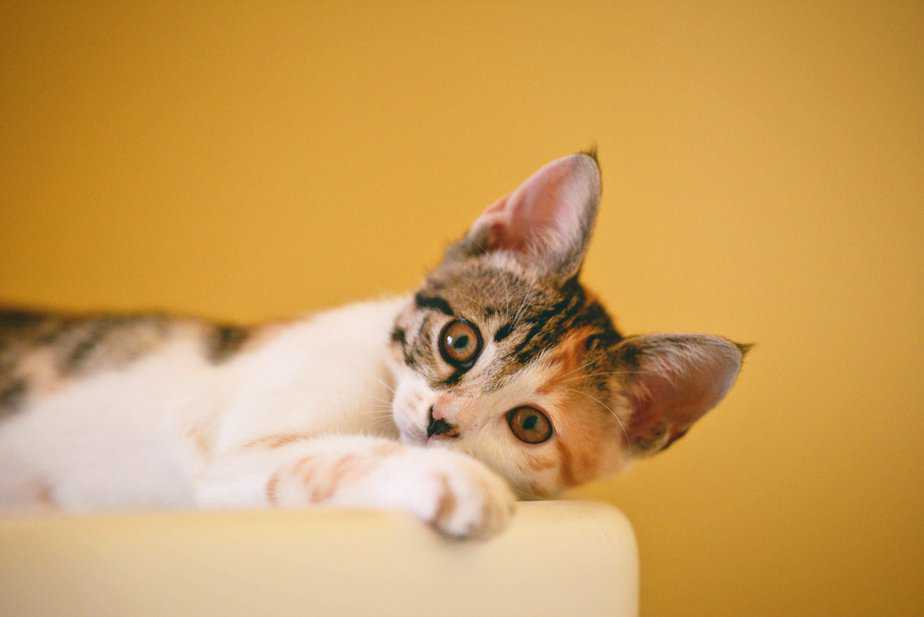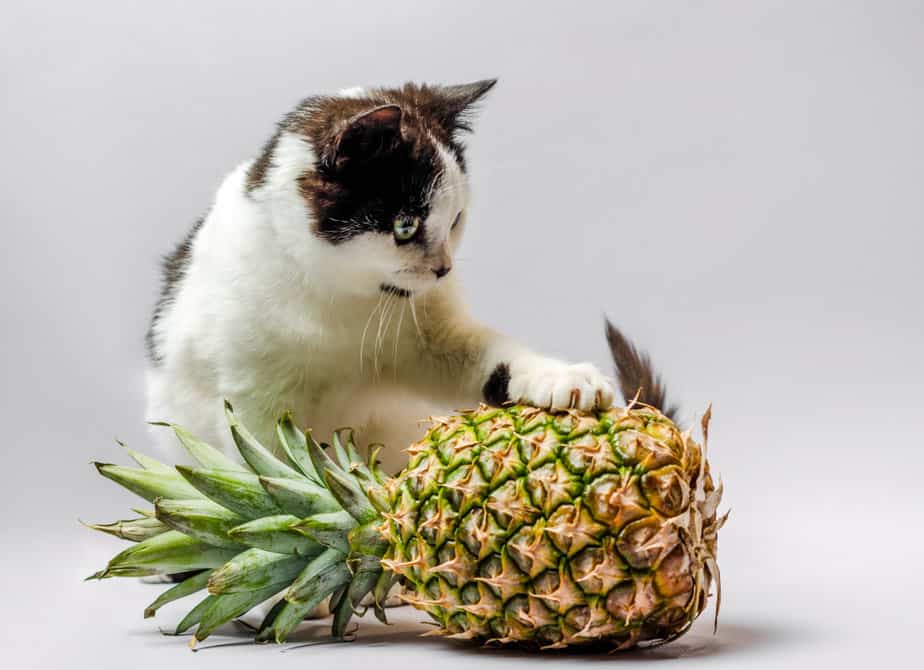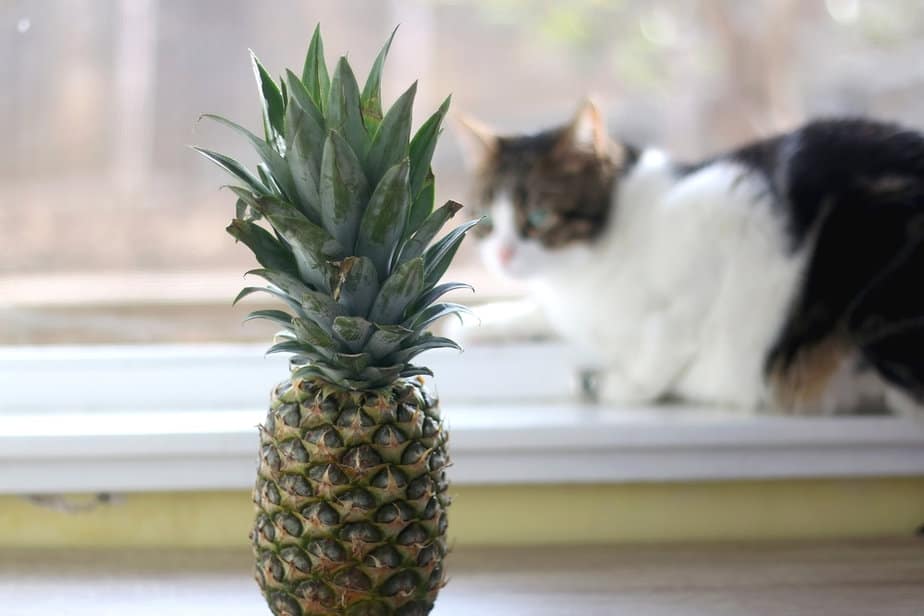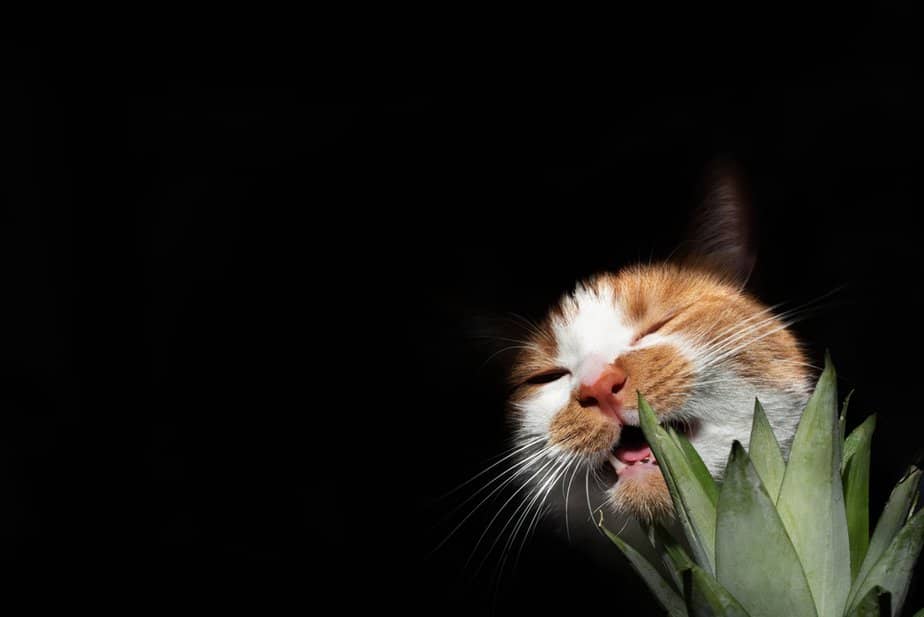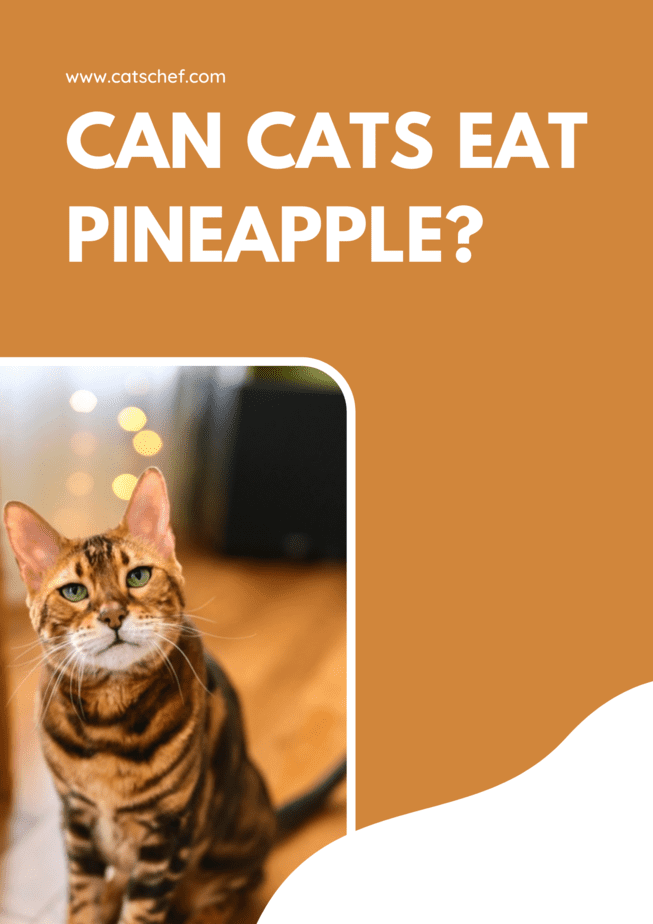📖 Table of Content:
It’s okay, I’m not going to judge you for that pineapple on your pizza. We have one really important question to answer: can cats eat pineapple?
While you were eating, your beautiful, four-pawed pet jumped on the table and managed to steal a piece of pineapple from your slice. It seems like she’s enjoying it, even with all those seasonings.
You know that there are certain kinds of fruit that are perfectly safe, even recommended for your feline, but what about this tropical queen? Is it safe for an obligate carnivore to eat it? If yes, can she eat every single part, or is there something toxic lurking?
Truth to be told, most cats will ignore anything sweet, since they don’t have the ability to taste sweetened food. Their tastebuds are not as developed as ours, so it’s completely useless to give them something sweet just because they may like the taste.
Nobody’s going to deny that they will be curiously sniffing a slice of pineapple on that cutting board while you’re preparing a fruit salad, but that’s about it.
Cats are obligate carnivores, as we’ve previously mentioned and you probably knew it beforehand. It means that they get everything important from meat, so this is the only food they actually need. However, cats are extremely curious animals and they won’t hesitate to try something new if it seems appealing.
Of course, they have that natural instinct for surviving, so they won’t necessarily eat everything that’s right under their nose, right? But fruits and vegetables can sometimes be very appetizing and hard to resist.
You don’t need an answer to the questions like “Why is pineapple called that way when there is no pine or apple?“, nor do you want to solve the language dilemma of bananas without the letter ‘B’ being the pineapple.
Different questions bother you now. Will cats like fresh pineapple or they’d rather eat the canned one? Is it true that cats like to chew pineapple leaves? Can it be poisonous?
This fruit is important for human beings because it’s a great source of vitamin C and many other benefits. However, it’s not something that cats need in their diet. Still, that’s not going to stop you from seeking answers.
Is pineapple safe or toxic? Time to find out!
Can cats eat pineapple safely?
First and foremost, pineapple is safe for your furbaby. But,… (Yes, there is ‘but’.) Pineapples contain actinidain and bromelain, the enzymes that can be dangerous if your cat is allergic to them.
Actinidain is an enzyme that is also found in kiwi. If your pet had a bad experience with this fruit, avoid feeding her pineapple as well. You don’t want to make the same mistake twice, nor put your cat in danger.
If you’re feeding pineapple for the first time to your cat, make sure you cut it into small cubes. This will help to avoid choking. Plus, you can remove seeds, so she can taste the soft part only. And make sure you’re present during the whole meal-time, so you could react immediately if something bad happens.
Don’t give her big chunks or hard parts (avoid the middle of the pineapple and its firm shell), and throw away the leaves, too. Eating too much of this fruit can cause diarrhea, so be attentive when you’re serving it to your lovely feline.
However, you can do a little happy dance if you feel like it because pineapple is not that bad. There are a couple of nutritional benefits for your furbaby if she eats this fruit.
Manganese, found in pineapple, helps them to better digest carbs and proteins from their regular food. Also, after consuming the fruit, your cat’s body absorbs folate, vitamin B6, copper, and fibers.
I assume that there’s no need to mention how this fruit will be beneficial for the cat’s hydration. She mostly doesn’t drink enough water on her own. Additionally, bromelain, one of the enzymes we’ve mentioned in the beginning, can help cats with seasonal allergies.
One more thing that is worth mentioning is that pineapple helps cat’s digestive system. In case they have problems with constipation, they won’t only enjoy this fruit’s texture, but eating pineapple will help them go.
You can include other fruits like apples, pomegranates, and blueberries in small amounts as a substitute for pineapple in this case.
So, generally speaking, pineapple is safe for your adorable feline. You’ll have to pay attention to a couple of things, though. Make sure your cat doesn’t come across something she may choke on and don’t serve this delicious fruit to your furball often, no matter how much you like it.
Your mischievous little devil may want to eat it simply because the texture of pineapple is something fascinating to her. Even so, avoid serving this fruit more than three times a week since overconsumption may lead to gastrointestinal problems.
Can cats eat canned pineapple?
We figured out that fresh pineapple is not so bad for your kitty, but what about the canned one? Will the amount of sugar it contains be fatal for your feline? Let’s tackle that topic as well.
You know all of the pros and cons of feeding your cat canned chicken, but what about canned pineapple?
Danger alert!
Canned pineapple contains enormous amounts of sugar that can be hazardous to your little fur buddy. Moreover, a lot of additives and preservatives are included to keep the pineapple fresh for a longer period of time. These can be toxic for your cat.
Try to avoid anything sweet and pineapple-related, like syrup or candied pineapple. Both of these are processed and can cause vomiting and diarrhea, as well as cramps and upset stomach.
Can cats have pineapple juice?
Similar to canned pineapple, pineapple juice has huge amounts of sugar. Therefore, you should avoid giving it to your cat. It contains artificial flavors that are really hard for your cat’s digestive system to deal with.
Even though a drop or two won’t do any harm, larger amounts may cause stomach problems, vomiting, and diarrhea. Before you decide to share a cup of this juice with your feline, make sure she’s not allergic to the pineapple itself.
The rest shouldn’t be the problem, as long as you’re not going overboard with the amount you’re offering to her. No matter how tasty this juice is to you, she can’t sense that sweet aftertaste. Does it make sense to give her some then?
Can cats eat pineapple leaves?
It could happen that your cat starts chewing on pineapple leaves if you left them on a kitchen counter. Is it going to hurt her? Probably not, but if you can prevent this scenario from happening, please do so.
Pineapple leaves don’t have any nutritional value, but because of their interesting rubbery texture, they may entertain your lovely feline. But be careful. Leaves contain sap that may cause allergic reactions, as well as bromelain, the enzyme that we’ve mentioned in the beginning.
Bromelain helps break down the proteins and for the cats that are allergic, it can cause swelling or bleeding in their mouth, as well as make their stomach upset. This enzyme can be found mostly in pineapple leaves, so you should pay attention if your cat likes chewing on them.
To conclude, fresh pineapple is actually a good treat for your furbaby from time to time. Try to avoid serving her any form of this fruit that contains a lot of sugar. Also, double-check that your cat is not allergic to it. Afterward, make sure that you both enjoy this tropical delicacy next time.
In case you notice any health issues with your feline after eating pineapple, contact your vet right away for medical assistance.
You may want to read this: Can Cats Eat Dragon Fruit? Are There Any Benefits?
